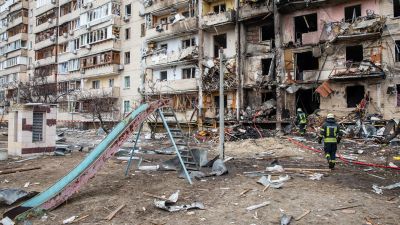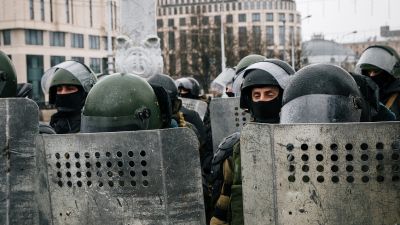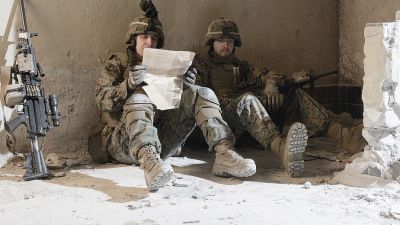Charles University recently hosted a one-day conference at the Patriotic Hall bringing together top members of the legislative branches in the Czech Republic, Estonia, Lithuania, and Latvia, to mark 100 years since the Czechoslovaks de jure recognised the independence of the three Baltic states. An accompanying panel exhibition, titled The Czech-Baltic Century 1921-2021 is on view at the Carolinum.
The event – bringing a renewed emphasis on state sovereignty, cooperation and mutual recognition – gained increased significance not least because of continuing Russian aggression in Ukraine, where the invasion is now in its second month. Sadly, not a day goes by without new revelations of atrocities. Historically, the Baltic States were swallowed by the Soviet Union while after WW II Czechoslovakia became a Soviet satellite state. In addition, Czechoslovakia was invaded by Soviet troops in 1968 (which crushed the period of reforms known as the Prague Spring) and led to the demoralising so-called Normalisation Period.
 Russian troops maintained a presence in Czechoslovakia until 1991, even after the fall of communism in Europe. All four countries have had a complicated relationship with Russia in the past. As now.
Russian troops maintained a presence in Czechoslovakia until 1991, even after the fall of communism in Europe. All four countries have had a complicated relationship with Russia in the past. As now.
The lead up and launch of a war by Russian leader Vladimir Putin complicated ties exponentially overnight. Since 24 February, the world has seen a massive, unrelenting and merciless assault against Russia’s neighbour which celebrated 30 years of independence just last year. The threat is one felt acutely by all, but unlike Ukraine, the Baltic States and the Czech Republic are members of both NATO and the EU – bringing with them substantial security guarantees. It is lost on no one, though, that Baltic States view the situation – and the risk of escalation – from close up. Charles University’s Luboš Švec, a key organiser of the conference and associate professor at the Faculty of Social Sciences, confirmed on the day of the conference that Ukraine was understandably on everyone’s mind.
A number of speakers focussed on Russia historically, as well as other states, while Associate Professor Švec spoke about the need in the past for likeminded nations to hang together and not stand alone in times of adversity.
“I would like to mention the words of the first Czechoslovak rector of Charles University, the philologist Josef Zubatý who spoke about sympathy and solidarity of oppressed nations. From the Baltic point of view, you might see the Czech Republic (or then-Czechoslovakia) as a bigger nation but Czechs consider themselves a small nation. I think it was very important to find a common history. Differences but also analogies. As I mentioned earlier today, it is very important to point out that historic ways of trying to achieve security or neutrality during the interwar period proved unsuccessful. Czechoslovaks and then the Baltic states became victims of their totalitarian neighbours, first Germany and then the Soviet Union and it’s very important to learn this lesson from history. No conflict can be isolated, especially in the area of eastern Europe.”
A lot of details were unpacked in some of the presentations, from the founding of individual states to the eve of the Second World War. One of the speakers, historian Magnus Ilmjarv of Tallinn University, Estonia, mentioned that many underestimated how much of a role Czechoslovakia (and its abandonment in the Munich Agreement) would end up playing. That appeasement would only embolden the Nazis and would soon see Czechoslovakia subjugated and divided.
“Munich was the first step, followed by the Second World War. It’s clear that the policy of appeasement did not help. It helped none of those who hoped to avoid war.”

From left: The speaker of Lithuanian parliament Viktorija Čmilytė-Nielsen, the speaker of the Latvian parliament Ināra Mūrnie, and the head of the unicameral parliament of Estonia, Jüri Ratace.Followed by CU Vice-Rector for International Affairs Markéta Křížová, the speaker of the Czech lower house Markéta Pekarová Adamová and the head of the Czech Senate Miloš Vystrčil.
The one-day conference at the Patriotic Hall featured speakers from universities from all four countries, looking at historic chapters as well as how, for example, the Baltic States are perceived by Czechs in 2022. Are their citizens viewed within a bloc of sorts or members of independent states with their own important complex cultural, historical, economic and political differences? (Hint: Czechs – and they are probably not alone – have been known to mix up the Latvian and Lithuanian flags at football games, even confusing their national anthems. On the other hand, the US Marine Corps flew the Canadian flag upside down at the 1992 World Series, so nobody’s perfect).
The Faculty of Arts at Charles University’s Kristine Ante had a presentation about just how Estonia, Latvia, and Lithuania are viewed by Czechs and it was not, she said, too different from our European neighbours. It seems there is also room for improvement. Luboš Švec confirmed that promoting stronger cross-cultural ties and awareness was one of the reasons for the conference.
“We mix up Latvia and Lithuania. It seems to be a traditional Czech mistake. I hope that conferences like this can help reduce the confusion.”
We saw state representatives here at the opening of the exhibition and the conference: How overshadowed are proceedings by what is going on in Ukraine? Because the security situation for the Baltic States is a primary concern.
“Of course. The situation for them is dangerous now. I remember that in 1997 that Russia, Premier Chernomyrdin, came with a proposal that Russia would guarantee the neutrality of the Baltic States. They rejected it and oriented their policy towards joining the EU and NATO. I cannot imagine taking Russian guarantees. This is what we can see in the case of Ukraine: the sad story of the Budapest Memorandum of 1994. It’s very important to express solidarity with all of the eastern states on the border of NATO. Everybody feels the need to help and support Ukraine and to prevent battles in Kyiv and Kharkiv from spreading. We have to help them so that after Kyiv, fighting does not spread to Tallinn, Vilnius, Riga… or Prague.”
























